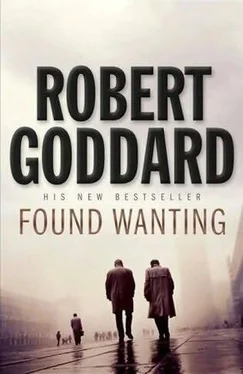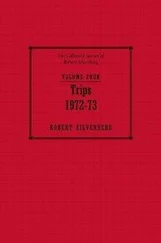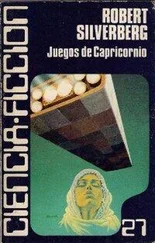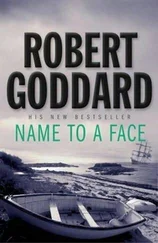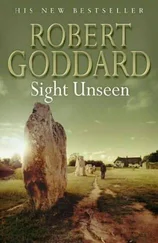‘You are telling me everything, aren’t you, Marty?’
‘Everything I know.’
‘Did Otto Straub have any… pet theory… about what Clem and Nydahl were up to?’
‘According to Werner, he thought Clem must’ve been sent over to Copenhagen at some point in the nineteen twenties as part of a Buck Pal initiative to assist Nydahl in dealing with the fallout from Anna Anderson’s claim to be Anastasia. The Queen Mother, Alexandra, was Dagmar’s sister, remember. It’d be understandable if she wanted to help out.’
‘Why Clem?’
‘Well, Alexandra was in the royal party at Cowes regatta in August 1909. She was the queen then. Maybe she was impressed by how Clem thwarted the assassination attempt and kept his mouth shut about it.’
‘But what was there for Clem – or Nydahl – to do? You said Dagmar wrote off Anna Anderson as an impostor without even meeting her.’
‘Did I?’ Marty looked troubled. ‘That’s not strictly accurate. Blame the tumour. Surprisingly enough, this is one of my good days.’
‘Would you care to be “strictly accurate” before we start rattling cages in Århus?’
‘Cupboards, more like. With skeletons inside. All right. But it’ll have to wait.’ Marty nodded down at a train approaching the platform below them. ‘That’s ours, I think.’
Marty began his explanation as soon as they were settled aboard the train. He looked tired, Eusden noticed in the watery sunlight that angled through the window as they left the station. He was struggling to concentrate. It was easy to forget how ill he really was.
‘OK, where was I? Dagmar. The Dowager Empress. No dope, apparently. She realized that, if she admitted her son and grandson were dead, she’d have to choose an official pretender to the Tsardom from a squabbling bunch of cousins, inevitably causing a split in Romanov ranks. She solved the problem by steadfastly maintaining that the Tsar, Tsarina and all their children were still alive, somewhere in Russia, a convenient fiction that preserved family unity in her lifetime but ruled out the very possibility of acknowledging Anna Anderson as Anastasia. She didn’t exactly ignore her, however. She sent her daughter Olga, who was living with her in Copenhagen, to visit Anna in hospital in Berlin, in the autumn of 1925. Olga seemed to agree the girl was Anastasia, only to change her mind when she got back to Copenhagen. Her trip had coincided with the death in England of Queen Alexandra, which sent Dagmar into a depression from which she never really recovered. It’s hard to say what she might have done if she’d remained fit and well. But she never actually denounced Anastasia as an impostor. The so-called Copenhagen Statement, in which twelve members of the family, including Olga, formally rebutted Anna’s claim to be Anastasia, was only put out after Dagmar’s death. Straight after, as a matter of fact.’
‘Surely Olga wouldn’t have signed such a statement unless she believed it? We’re talking about her own flesh and blood.’
‘We’re also talking about Russian royalty of the nineteenth century. Virtually a separate species of humanity. There was a huge stumbling-block to accepting Anna’s claim, one of Anna’s own making. I don’t mean her obstinate and prickly personality, though that didn’t help, even if it did chime with people’s memories of Anastasia. No, no. The real problem was her story of how she’d escaped the massacre.’
‘They died in a hail of bullets in a cellar, didn’t they? How did she get out of that?’
‘She said she stood behind her sister Tatiana and was knocked out when Tatiana fell on top of her. She woke up in a farm cart being driven by the Tschaikovsky family, mother, daughter and son. The son, Alexander Tschaikovsky, had been a guard at Ekaterinburg and had rescued her from the pile of bodies when he realized she was still alive. They smuggled her out of Russia and took her to Romania. They settled in Bucharest, where she married Alexander shortly before giving birth to a son, in December 1918. The son wasn’t Alexander’s, though. She’d been raped by another guard while in captivity. She let Alexander’s sister adopt the boy. Then, when her husband was killed in a street brawl, she decided to seek help from her family and set off for Berlin, where her aunt Princess Irene lived, accompanied by Alexander’s brother, Serge. After they reached Berlin, Serge inexplicably vanished. She convinced herself he’d been murdered and that she’d be rejected by her family, so she tried to end it all by jumping into a canal. She was rescued, hospitalized, then sent to an asylum suffering from amnesia and referred to as Fräulein Unbekannt – Miss Unknown. Gradually, she revealed who she really was and a fellow patient went public with the story when she was discharged early in 1922. Cue general hysteria and enduring controversy. But it’s worth remembering that the truth, if it was the truth, was completely unacceptable – viscerally intolerable – to any right-thinking Romanov. A daughter of the Tsar couldn’t bear a child to an illiterate peasant turned prison guard. It just couldn’t happen.’
‘But if she was raped?’
‘It didn’t matter. A daughter of the Tsar who told that story was by definition no daughter of the Tsar. She should have died rather than endure such shame. Therefore Anastasia must have died.’
‘But you don’t think she did, do you?’
‘I don’t know what to think. The counter-claim was that she was an uppity Polish factory worker who tried to drown herself when she realized her dream of becoming an actress, which had brought her to Berlin, wasn’t going to be fulfilled. Then, ironically, it was fulfilled, thanks to the role she artfully assumed while in the asylum. That’s what the DNA says. Mrs Manahan’s DNA and that of a great-nephew of Franziska Schanzkowska are a perfect match. Maybe too perfect, since there’s some evidence the great-nephew’s grandmother was only a half-sister of Franziska, which would make such a close match impossible.’
‘Proving the hospital sample was a fake.’
‘It doesn’t prove anything, Richard. Nothing does. I’ve turned myself into a Mastermind specialist on Anastasia these past few weeks and the only thing I know for certain about the case is that there is no certainty and probably never will be.’ Marty yawned and flexed his arms behind his head, as if bored with the subject. Then he chuckled at some humorous thought that had occurred to him. ‘But I did only say “probably”. You never know your luck, do you?’
Eusden dozed for much of the journey, the late and anxious hours he had kept the previous night catching up with him as soon as the rhythm of the train asserted itself. Marty also slept – the deep sleep of a sick man.
The afternoon had given way to evening as they headed north through flat, snow-patched fields and wraith-pale stands of silver birch. Studying his friend, unconscious in the seat opposite, during one wakeful interlude, Eusden had noticed how much older and weaker and iller Marty seemed when his eyes were not open and twinkling, his voice not rising and falling. The search he had embarked upon was also a flight from his own mortality. In that sense, it could not succeed. At its end lay only a choice of ways to fail. It was a dismal truth to grasp as darkness fell across the Jutland sky.
Another station in another city. It was early evening in Århus, cold, dank and dark. Asked for a hotel recommendation, their taxi driver talked up the Royal on the grounds that it had a casino where he had once finished an evening in profit. They did not argue.
The Royal turned out to have advantages other than in-house roulette: comfortable rooms and a central location adjacent to the cathedral, in the old heart of the city. En route to their rooms aboard the geriatric lift, they agreed to go in search of supper once they had unpacked.
Читать дальше
